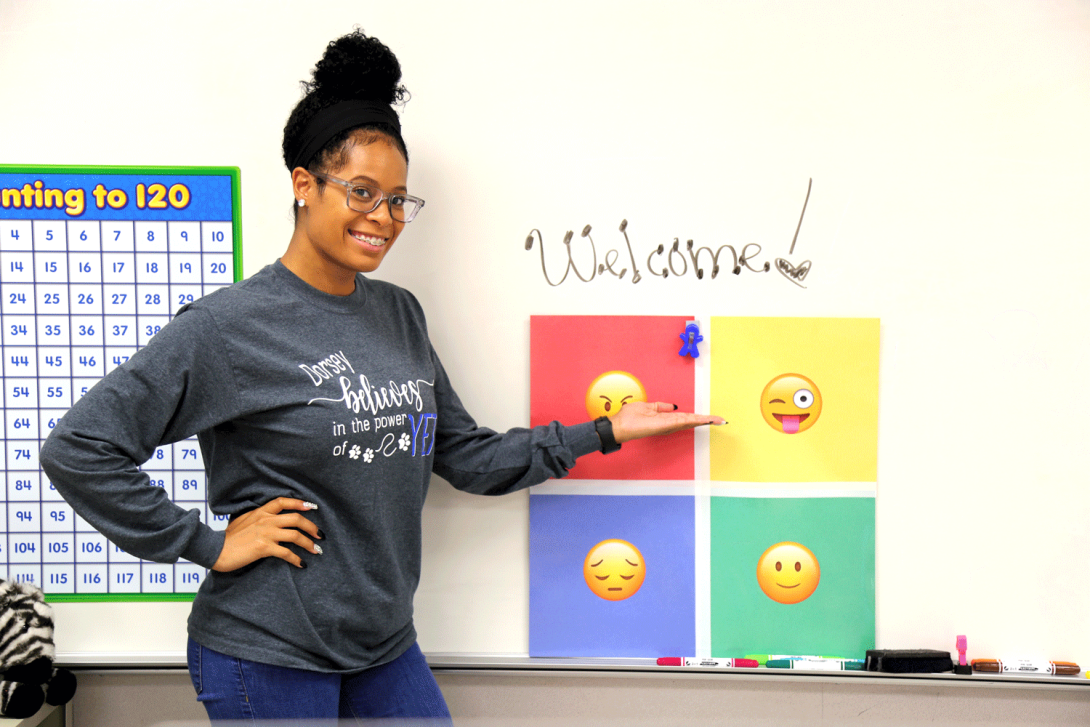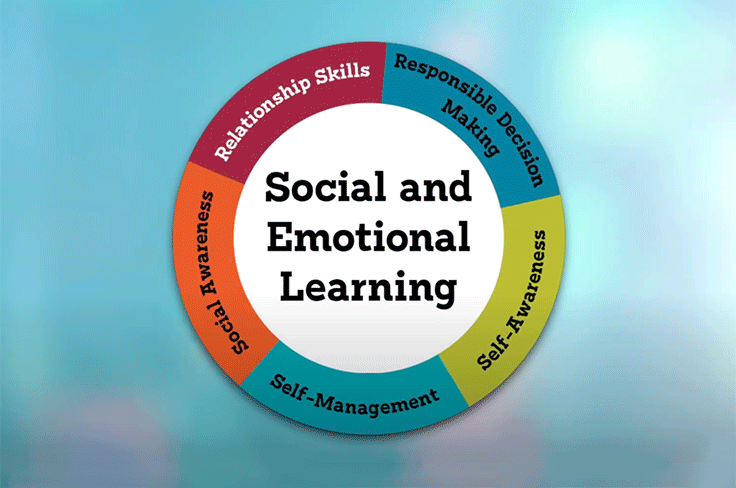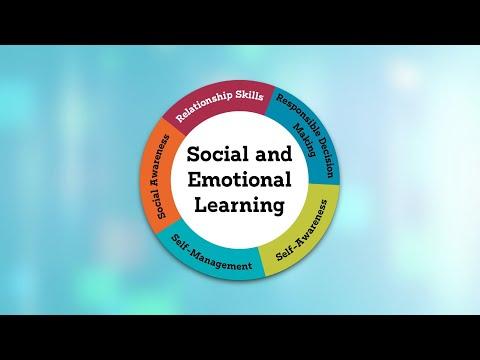


Social and Emotional Learning
Social and Emotional Learning (SEL) is an important part of well-rounded student instruction. These skills help students academically, emotionally and socially.

About SEL
Social and Emotional Learning is the process of developing self-awareness, self-control, and interpersonal skills necessary for life. SEL builds relationship skills, self-awareness, social awareness, self-management and responsible decision making. In practice, SEL grows important soft skills like:
-
understanding and managing emotions
-
setting and achieving positive goals
-
feeling and showing empathy for others
-
establishing and maintaining positive relationships
-
making responsible decisions

Our mission is to help create an environment where every student can thrive and achieve excellence. We do this using SEL by:
- empowering learners by developing SEL skills
- fostering open and equal environments
- cultivating partnerships that help our community develop and thrive
We use the basics to guide our use of SEL in our district:
- relationship building
- developing student grit
- creating engaging learning spaces
- Whole Child Development
All campuses have selected activities that highlight these practices. We target these building blocks in our instruction and through the three signature practices:
- Welcoming activities
- Engaging practices
- Optimistic closures
Interested in learning more about SEL in GISD?
Skill Building Instruction
At the elementary level, school counselors help students learn and practice positive social skills through class activities and small group lessons. As students move into middle and high school, counselors continue to support social-emotional learning by teaching goal-setting, self-management, and skills that prepare students for life after high school.
Community Building Activities
Many campuses start the day with short, intentional activities that promote focus and positivity. Students also participate in check-ins, such as mood meters and morning greetings. Students engage in activities that:
- Build confidence
- Practice mindfulness
- Reflect on learning
- Explore career pathways
- Develop strong character
Sample Morning Meetings Presentations
Sample Community Conversations
Sample Check-Ins
Campuses may also offer:
- Peer mentoring programs to strengthen leadership and social skills
- Advisory periods that provide regular check-ins and skill building time
- School-wide events and service projects that foster connection, teamwork, and a sense of community
If you would like more information, please contact your child’s school counselors or the Guidance and Counseling Department.
SEL at home
We encourage families to use the “Three Signature Practices” at home similar to the school environment. When students see a respectful partnership between home and school that helps them, they are likely to have positive attitudes about school and be successful. Social and Emotional Learning (SEL) has a direct impact on creating connectedness among staff, students and parents.
Welcoming activities
- Say a good morning greeting to everyone in the house.
- Discuss what everyone in the family is grateful for before leaving the house.
- Have a morning affirmative phrase to say as a family for starting the day.
Engaging practices
- Cook a family meal together and eat together.
- Enjoy a weekly family game night.
- Allow your child to have a voice in expressing their emotions.
- Practice problem-solving skills and conflict resolution scenarios.
Optimistic closure
- Engage in a "Mindful Minute" before going to bed (see ideas in the Family Coping Kit resources below).
- Tell a family member what you appreciate about them before going to bed at night.
- Encourage each family member set a goal for the next day.
SEL Resources for families
Expand AllMaking a calm home environment
- Take care of yourself (model good self-care).
- Support your children in their full range of emotions.
- Have consistent daily routines.
- Find creative ways to maintain friendships and social connections.
- Make time for play, rest and family time.
- Help foster compassion by encouraging them to reach out to people or virtually volunteer.
- Maintain physical health with proper exercise and cleanliness (ex. handwashing).
- Provide age-appropriate and accurate information about world events.
- Share with children what you do to keep them safe.
Creating a family emotional coping kit
-
Use "emotion emojis", "the feelings wheel" or create your own family set of emotional emojis to name and acknowledge emotions children may be experiencing. Let your child know that there are no bad emotions.
-
Practice calming breathing techniques and mindfulness activities to reduce stress.
-
Try yoga or other movement and stretching activities.
-
Do fun indoor physical activities and games.
-
Provide a private journal or sketchbook where children can express their emotions through writing or drawing.
Virtual calming room
Use the GISD virtual calming room for tools and strategies on managing emotions.
Books to read with your family
Engage your children in learning SEL by reading these books:
Discover more in counseling services
Contact us
Stay updated with GISD SEL by following us @gisdsel on X (formerly Twitter) and Instagram.

















